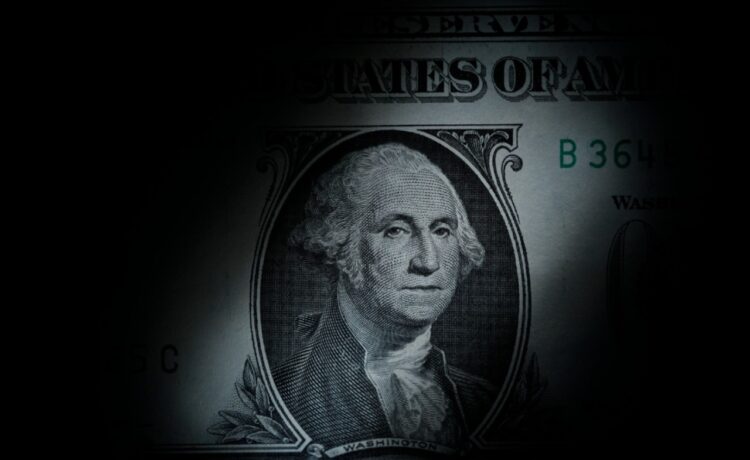The power of the dollar over weaker Asian currencies is attracting attention as the prospect of interest rate cuts by the Federal Reserve recedes over the horizon.
Former President Trump is the latest voice to weigh in on the economic consequences of the strong dollar, which can slash demand for U.S. exports and make goods produced and sold in weaker currencies more attractive to importers.
Trump lamented the 34-year high reached by the dollar over the Japanese yen on the Truth Social platform Tuesday morning and discouraged the practice of deflating currencies in the service of boosting exports.
“When I was President, I spent a good deal of time telling Japan and China, in particular, you can’t do that,” he wrote Tuesday morning.
“It sounds good to stupid people, but it is a disaster for our manufacturers and others. They are actually unable to compete and will be forced to either lose lots of business or build plants, or whatever, in the ‘smart’ countries,” he wrote. “This is what made Japan and China into behemoths years ago.”
Last week during a trilateral ministerial meeting, the governments of the U.S., Japan and South Korea issued a rare joint statement on pressures facing Asian currencies and their recent depreciation against the dollar.
The countries said they acknowledged “serious concerns of Japan and the Republic of Korea about the recent sharp depreciation of the Japanese yen and the Korean won.”
Analysts say the statement could signal tacit approval by the U.S. of moves by Japan and South Korea to prop up their currencies.
“U.S. Treasury Secretary Yellen acknowledged Japan’s worries over a sharp yen depreciation in a joint statement … that suggested the US would give a green light to intervention in both currencies,” researchers with Deutsche Bank wrote in a note to investors.
The dollar was trading at a ratio of 1-to-154.81 Japanese yen as of Tuesday afternoon, around the highest level since 1990.
The dollar was at a 1-to-7.25 ratio against the Chinese renminbi, the highest level since November. Against the South Korean won, the ratio was 1-to-1,373.86, off recent highs above 1,391 but still near the highest level since November 2022.
The volatility of the dollar in foreign currency markets has been pronounced in recent months as interest rates have remained high and U.S. Treasury yields have steadily climbed, bringing foreign investment into the country.
Deutsche Bank’s U.S. dollar volatility index spiked to 7.18 last week after hovering around 6 since February.
Bank of Japan Governor Kazuo Ueda told reporters last week that the central bank could consider further interest rate hikes after raising rates in March for the first time in 17 years, marking a shift away from an era of foundational quantitative easing.
If the effect of the yen on inflation “becomes too significant to ignore, there could be an adjustment to monetary policy,” Ueda said after a Group of 20 finance ministers meeting on Thursday, as reported by Japanese news outlet Nikkei.
Japanese interest rates are currently at a rate of 0.0 to 0.1 percent. Japanese inflation came in at a 2.7-percent annual rate in March.
Chinese central bankers, who are trying to perk up a languishing domestic economy, have been weighing how much to relax controls on the renminbi. The Chinese one-year loan prime rate was kept unchanged this week at 3.45 percent, while the 5-year rate was held at 3.95 percent.
The U.S. dollar has recently been gaining on other international currencies as well, including the U.K. pound sterling and the Euro — momentum created by a higher-for-longer scenario in U.S. interest rate levels following stronger-than-expected economic performance data.
Copyright 2024 Nexstar Media Inc. All rights reserved. This material may not be published, broadcast, rewritten, or redistributed.
















